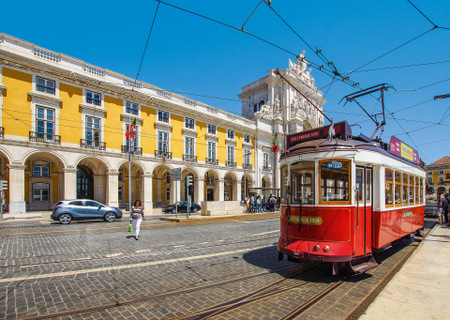Mole Expert Hub – Understanding the digital nomad business traveller

Digital nomadism has been commonly associated with millennials hanging out at Starbucks, or faraway yoga retreats and working from a hammock. Influencers’ social media content is skewed towards this idolized lifestyle.
These perceptions have narrowed industry understanding. Digitial nomads rarely feature in strategic discussions about the business travel market. How profitable can digital nomads be for destinations and hotels? What does this market of business travellers need?
Expert Hub editor and eight-year digital nomad Stephen Bailey explores the opportunities.
Strip away location independence and digital nomads are a rapidly growing population of business professionals. They are millennials and middle aged, mostly singles and couples without children. A 2018 MBO study claims the digital nomad population is already 4.8 million in the US alone; 16% of these earn USD 75,000 or more.
These nomads work within an ever-widening sphere of professions that can be performed remotely and online. Importantly, they do not spend their disposable income on travel. They are active travel consumers for most of the year, distributing almost their entire income in the destinations they choose.
Tourism Research Australia illustrated how backpackers spend 20% more than luxury travellers due to their length of stay. Digital nomads are not on a career break or gap year. Travel is their everyday and they stay longer in destinations than any other market segment. Some hop between up to a dozen destinations in a year. Others move less regularly, investing two to six months at a time in each place. They are also repeat visitors in destinations they enjoy.
Lisbon is a popular European digital nomad destination
Rapid recent growth has turned Thailand into a popular hub, especially among the US market. Bali and Medellin in Colombia are others. Berlin and Lisbon are revered destinations, a handful of Eastern European cities to a lesser degree.
For digital nomads these destinations are vibrant, culturally inviting, good value for money, and a genuine travel experience. There is opportunity for DMCs to market and develop what they offer this audience.
Accommodation needs to be comfortable and hassle free. Short-term apartment rentals are very popular, sourced through a variety of local agents and international platforms. There is strong potential for aparthotels to find success here, particularly given nomads’ preference towards visiting during low and shoulder seasons.
All major hotel brands now have their first generation of millennial focused hotels; see Cosi by Centara and their 24-7 ‘social hub and digital playspace’. These hotels suit the occasional nomad mixing travel with work, as well as illustrating the potential to target a niche within the market.

The Ministry of New coworking space in Mumbai
Mid-range hotels are occasionally used by full-time nomads making relatively short stops in a destination (from a few days to a month). Clean, comfortable and spacious are the prerequisites. There is potential for hotels realise far more of the market, possibly through well marketed long-stay discounts. The challenge versus traditional business travel is how to effectively market to individuals.
While full-time digital nomads can and will work anywhere, their non-negotiable requirement is a reliable office space. This audience does not live in Starbucks or hammocks. Working full time from short-term accommodation brings professional and mental challenges. Previously, digital nomads were forced into these challenges as the other options were corporate office space (such as Regus) and cafes with insecure wi-fi.
Co-working offices provide the business space demanded by this professional audience. By 2020 the number of worldwide co-working spaces is projected to pass 20,000. This rapid growth has been organic and community driven, rather than strategic. Despite being a major factor in business travel market growth, there is little evidence of partnership working between co-working offices and DMOs.

Coworkers have a view of Table Mountain from CTO in Cape Town
A good co-work office needs reliable high-speed Wi-Fi and be an appetizing space to work from. Community has also been integral to their success. Good co-work spaces impact positively on the overall travel experience. They are fun and can be culturally immersive, while preserving a professional working environment.
Co-work offices have already filtered into business travel. There is a global trend away from fixed office space, reducing costs and overheads, while widening the talent pool. Location independent business travellers can connect with a more diverse spectrum of people and gain a deeper understanding of a local environment. They can travel and getaway, seeking new experiences in new places, while still advancing a career.
The location independent lifestyle is now driving a trend for business travel, expediting a shift from travel as a function for business, to business as a travel choice. Visitors stay longer in destinations and connect more widely. This sense of lifestyle over layover also feeds into long-term sustainable tourism, particularly the diversification of communities and destinations that can benefit from business travel.
All projections point to an increased number of location independent professionals, spending increased time and money in a widening range of destinations. Which destinations and organizations will realise the potential of this underserviced growing market?
Stephen Bailey is the acting managing editor of the TravelMole Expert Hub. He has been a full-time digital nomad since 2011.
 United Kingdom
United Kingdom United States
United States Asia Pacific
Asia Pacific












































Boy falls to death on cruise ship
Dozens fall ill in P&O Cruises ship outbreak
Turkish Airlines flight in emergency landing after pilot dies
Unexpected wave rocks cruise ship
Woman dies after going overboard in English Channel